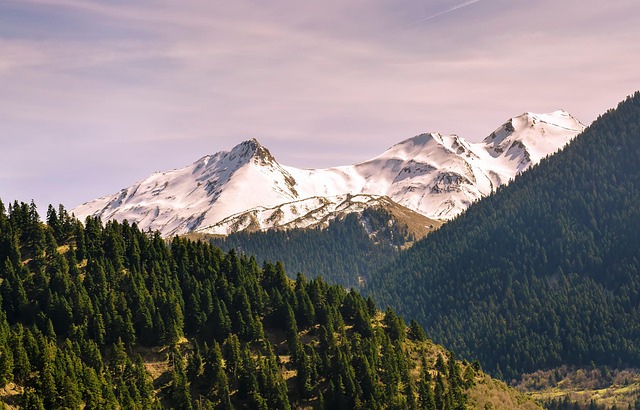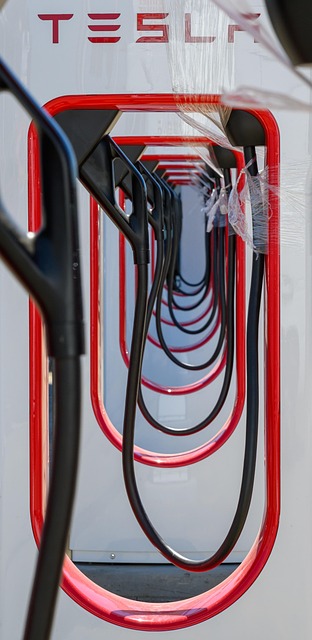The rising popularity of eco-friendly desert safaris in Dubai reflects a global trend towards sustainable tourism, with tour operators adopting responsible practices like using electric vehicles, implementing recycling programs, and promoting local community involvement. These efforts aim to protect the fragile desert ecosystem while offering unique experiences. Planning such a safari demands commitment to sustainability, including waste management, preservation of ecosystems and wildlife, and cultural sensitivity. Dubai's shift towards eco-conscious tourism includes innovative practices like electric vehicles, with tour operators encouraged to adopt waste reduction, water conservation, and renewable energy methods. Choosing destinations like the Al Habal Nature Reserve ensures adherence to strict environmental guidelines while contributing to the preservation of rare desert ecosystems. By prioritizing sustainable practices, travelers can enjoy Dubai's natural wonders responsibly.
“Discovering an innovative trend in Dubai’s tourism scene, this article explores Environment-first desert experience planners. With a growing demand for eco-conscious adventures, Dubai leads the way in promoting sustainable practices within its iconic desert landscapes. We delve into the importance of environmental conservation in delicate desert ecosystems and present key principles for planning responsible experiences. Learn about Dubai’s initiatives, ideal destinations for eco-friendly safaris, best practices, and future prospects shaping a greener tourism industry.”
- Understanding Eco-Friendly Desert Safari: A New Trend in Dubai
- The Importance of Environmental Conservation in the Desert Ecosystem
- Key Principles for Planning Sustainable Desert Experiences
- Dubai's Approach to Promoting Eco-Conscious Tourism
- Choosing the Right Destinations for Environmentally Friendly Safaris
- Best Practices for Minimizing Impact During Desert Activities
- Future Prospects: Growing Demand for Eco-Friendly Adventures
Understanding Eco-Friendly Desert Safari: A New Trend in Dubai

The concept of an eco-friendly desert safari in Dubai is gaining traction as travelers and tour operators alike become increasingly conscious of their environmental impact. This new trend goes beyond the traditional, often resource-intensive desert experiences, focusing instead on sustainable practices that preserve the region’s delicate ecosystem. With Dubai’s arid landscape offering unique challenges and opportunities, eco-conscious tourists are seeking out responsible ways to explore the desert without leaving a detrimental footprint.
In an eco-friendly desert safari, operators prioritize conservation efforts by utilizing electric or hybrid vehicles, minimizing waste through recycling programs, and promoting sustainable accommodations. Some even go as far as involving local communities in their initiatives, creating economic opportunities while ensuring cultural heritage is respected and protected. This shift towards sustainability reflects a global movement, where travelers are increasingly choosing experiences that align with their values, and Dubai’s desert landscapes have never looked more captivating through this environmentally-focused lens.
The Importance of Environmental Conservation in the Desert Ecosystem

The desert ecosystem, known for its harsh conditions, is a delicate balance of life that requires careful preservation. When planning an eco-friendly desert safari Dubai, it becomes even more crucial to prioritize environmental conservation efforts. The unique and often rare species of plants and animals in these arid regions are highly susceptible to human impact, making sustainable tourism practices indispensable.
Environmental conservation ensures the protection of the region’s natural beauty, from preserving scarce water sources to maintaining the diverse plant life that offers vital habitat for desert dwellers. By promoting eco-friendly practices, desert safari organizers can minimize their ecological footprint while offering visitors an authentic and responsible experience. This approach not only preserves the desert’s pristine state but also fosters a deeper appreciation for its fragility among tourists.
Key Principles for Planning Sustainable Desert Experiences

When planning an eco-friendly desert safari in Dubai, sustainability should be at the core of every decision. Key principles include minimizing environmental impact through responsible waste management, preserving local ecosystems and wildlife, and promoting cultural sensitivity towards the region’s heritage. Using renewable energy sources, implementing water conservation measures, and encouraging responsible tourism practices are essential for any self-respecting desert experience planner.
These planners should also foster a deep connection with nature by offering educational experiences that highlight the ecological importance of the desert habitat. Engaging tourists in activities like wildlife spotting, stargazing, or sustainable sand dune exploration can create memorable moments while leaving a positive footprint. Ultimately, an eco-friendly desert safari Dubai aims to balance adventure and conservation, ensuring that future generations can also enjoy this unique natural wonder.
Dubai's Approach to Promoting Eco-Conscious Tourism

Dubai, known for its extravagant skyscrapers and luxurious lifestyle, has recently taken a significant step towards promoting eco-conscious tourism with its focus on environment-first desert experience planners. The city aims to offer unique and sustainable adventures in the heart of the desert while preserving the region’s fragile ecosystem. By adopting innovative practices, Dubai is transforming traditional desert safaris into eco-friendly experiences that educate visitors about the local environment.
One of the key initiatives is the implementation of electric vehicles for desert safaris, reducing carbon emissions and minimizing the ecological impact. Additionally, tour operators are encouraged to adopt sustainable practices such as waste reduction, water conservation, and the use of renewable energy sources. Dubai’s commitment to these measures showcases its dedication to becoming a leader in eco-tourism, ensuring that visitors can enjoy the beauty of its desert landscapes while also preserving them for future generations.
Choosing the Right Destinations for Environmentally Friendly Safaris

When planning an eco-friendly desert safari in Dubai, destination selection is a pivotal step to ensure a truly sustainable experience. The city’s diverse landscapes offer a range of options for environmentally conscious adventurers. Opting for remote and protected areas allows visitors to witness the region’s natural beauty while minimizing ecological impact. These locations often have established conservation efforts, ensuring that tourism activities are carefully regulated to preserve the local ecosystem.
Dubai’s desert reserves, such as the Al Habal Nature Reserve, provide a perfect setting for eco-friendly safaris. These preserves offer opportunities for visitors to explore dunes, wadis, and unique wildlife habitats while adhering to strict environmental guidelines. By choosing these destinations, safari organizers can contribute to the preservation of rare desert ecosystems, ensuring that future generations can also enjoy the region’s natural wonders, like the iconic Eco-Friendly Desert Safari Dubai experiences.
Best Practices for Minimizing Impact During Desert Activities

When planning an eco-friendly desert safari in Dubai, minimizing the environmental impact should be a top priority. One key practice is to adhere to sustainable transportation methods, such as using electric or hybrid vehicles for tours. This reduces pollution and noise levels, allowing visitors to enjoy the serene beauty of the desert without disturbing its natural ecosystem. Additionally, ensuring proper waste management by providing recycling and composting facilities at campsites can significantly cut down on landfill waste.
Guidebooks and tour operators should educate participants about responsible behavior in desert environments. Simple actions like staying on designated trails, avoiding littering, and respecting local flora and fauna are vital. Encouraging guests to bring reusable water bottles and food containers reduces single-use plastic waste. By implementing these best practices, eco-conscious travelers can enjoy the unique charm of a Dubai desert safari while contributing to the preservation of this precious natural landscape.
Future Prospects: Growing Demand for Eco-Friendly Adventures

The tourism industry is witnessing a significant shift towards eco-conscious travel experiences, and this trend is expected to continue in the coming years. With an increasing number of travelers seeking authentic connections with nature, there’s a growing demand for sustainable desert safari adventures, especially in popular destinations like Dubai. Eco-friendly desert experiences offer a unique opportunity to explore breathtaking landscapes while minimizing environmental impact.
In response to this demand, many travel operators and experience planners are now specializing in creating sustainable desert tours, incorporating practices such as waste reduction, energy efficiency, and local community engagement. The concept of an eco-friendly desert safari Dubai is gaining traction among travelers who wish to contribute positively to the environment while enjoying exclusive adventures. This shift towards sustainability not only benefits the planet but also enhances the overall travel experience by fostering a deeper connection with both the destination and the natural world.
The rise of environment-first desert experience planners in Dubai signifies a promising shift towards sustainable tourism. By adopting key principles, understanding ecosystem conservation, and embracing innovative practices, these planners are paving the way for an eco-conscious future. The demand for eco-friendly desert safaris is growing, reflecting a global trend to reconcile adventure with environmental stewardship. As Dubai continues to lead this movement, it offers a model for other destinations, ensuring that breathtaking landscapes like the desert remain protected for generations to come while providing unforgettable experiences for visitors.
